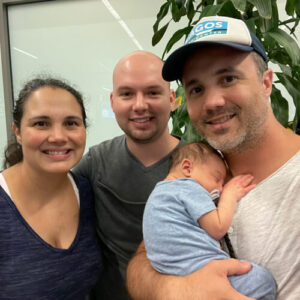
School of Justice Studies
College of Justice, Safety & Military Science
School of Justice Studies
College of Justice, Safety & Military Science
Contribute to Making Society Safer and Pursue a Justice Studies Career
A focus on quality, individualized instruction
The demand for trained criminal justice professionals is on the rise. Designated a Council on Post-Secondary Education “Program of Distinction”, the EKU School of Justice Studies (SJS) provides a stimulating learning environment that promotes critical thinking, a practical understanding of justice issues, and an open exchange of ideas. Our experienced faculty strive to maintain a low student to faculty ratio, allowing a focus on individualized instruction despite being one of the largest programs in the nation devoted to justice education. SJS proudly offers degrees in criminal justice, police studies, corrections and juvenile justice, as well as a graduate degree in criminology and criminal justice, that will help you contribute to society and prepare you for a justice-related career.
Learn More
School of Justice Studies Degrees & Certificates
Undergraduate Programs
graduate Programs

Why Study Justice Studies?
Justice studies are inherently interdisciplinary, concentrating on the various aspects of policing, courts, and corrections that impact societal understandings of, and responses to, crime. There are underlying cultural, economic, sociological, and political issues in the field that must be understood to be handled appropriately. Providing students with the most current knowledge in the field prepares them to meet the challenges of an increasingly complex, technological, and diverse society. Whether you want to be a law enforcement officer, court administrator, or victims advocate, there are many ways to make an impact in this broad career field.
We are committed to exemplary teaching, research and philosophy that is grounded in:
Student Stories & Features
Quick Links
Upcoming Events
| July 2025 | ||||||
|---|---|---|---|---|---|---|
| Mo | Tu | We | Th | Fr | Sa | Su |
| 30 | 1 | 2 | 3 | 4 | 5 | 6 |
| 7 | 8 | 9 | 10 | 11 | 12 | 13 |
| 14 | 15 | 16 | 17 | 18 | 19 | 20 |
| 21 | 22 | 23 | 24 | 25 | 26 | 27 |
| 28 | 29 | 30 | 31 | 1 | 2 | 3 |
| 4 | 5 | 6 | 7 | 8 | 9 | 10 |
News & Updates
Aviation Careers Beyond the Cockpit: EKU Graduates Soar in Aerospace Management
The Right Fit
Empowered by Community: EKU Graduate’s Journey from College to Career
Contact Information
School of Justice Studies
Stratton Building
Room 467
4453 Kit Carson Drive
Richmond, KY 40475
859-622-1978
jus.dean@eku.edu




